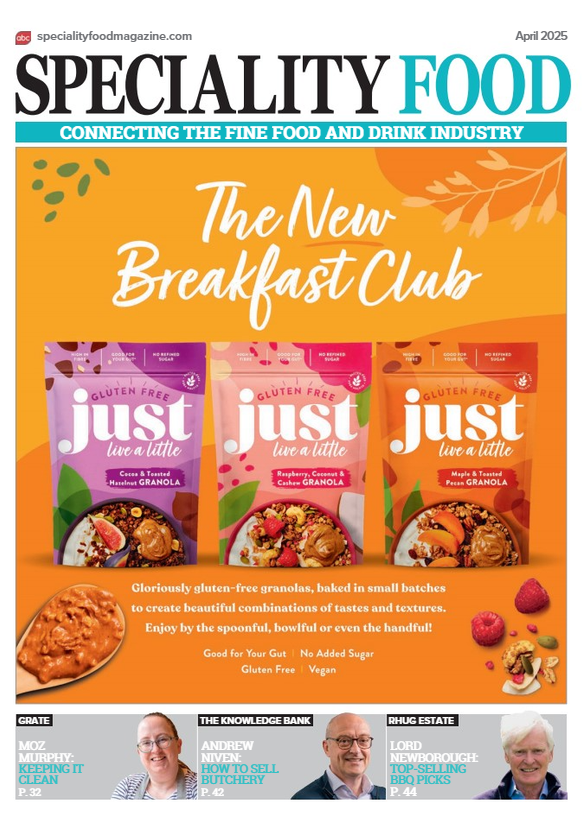Supplier etiquette

- “Sticky fingers”
- “Everyone’s a winner”
- “Myths and legends of Turophilia”
- “When ‘cheese’ is not cheese”
- “Don’t disrespect the Cheddar”
It’s comparatively easy to deal with wholesalers and distributors: one order and a single delivery means that a variety of goods come into store in an efficient manner
There’s credit on offer and sometimes an attentive rep with samples, point-of-sale material and if your account has grown year-on-year, perhaps even a Christmas box of choccies.
I was thinking of these benefits a couple of weeks ago, after placing an order with a local producer. I had left the order on an answering machine, saying that if they could get the order together, I’d come and collect – and asked them to call to confirm. The following week I’d heard nothing, so I called them. “Oh, I’m sending them by courier” said the part-time bookkeeper. “Really,” I said, “there’s no charge for that then, is there?” “Oh, but there is – seven pounds.”
Mental arithmetic being rusty, I looked at my fingers as I thought this through and realised what this meant for my business. £7 plus VAT on an order of a dozen bottles would mean almost an extra quid a bottle at retail if margin was not to slip; this line already returning the lowest margin of any item in the shop.
“Can you hold the courier, please – I did ask to come and collect, it’s less than 5 miles away.” “Fine – collect on Friday?” I said that I would. Twenty minutes later, the invoice arrived by e-mail. “Please note new price as notified by previous email” read the rubric beneath the order panel.
We’d received no such email (I searched inbox, junk and pending folders). I checked the difference in the old and new prices to see how significant this was: an additional £1.85 per bottle. I struggled to remember my accountancy lecturer’s oft chanted dictum – was it “a fifth on costs, a quarter on sales”? I wasn’t sure, but this increase meant about another £2.50 on each bottle at retail – and perhaps most importantly, forcing it above £30 a bottle (to £31.65 RRP). Lead digits really make a difference on pricing – £30 plus becomes an impulse purchase for far fewer customers than a price label in the high twenties. I opted to have just half a dozen bottles, which was clearly not welcome news to the producer. A fortnight later and just one has shifted – less than we would have expected for a local product at the height of the tourist season. I note that the producer’s direct sales website price is below £30, though the RRP they suggest to us is not!
We’ve had our (small) part to play in the growth of their brand. Lots of promotion, tie-ups for gifting, social media work and countless chats with visitors about a great new local product. We used to order happily from them when they were a two-man band, arranging to meet in car parks convenient for both of us, or a drop-off as part of the school run.
They’ve grown and have staffed-up. They’re now a recognised brand in their market and can be sourced in multiples all across the country. Clearly, consideration of the margins for their independent retailers is no longer a priority, nor is communication. Perhaps it’s time to de-list and move on.
It IS easier to deal with wholesalers, but a large part of our proposition and our rationale for existence comes from finding new products from small artisan sources. It’s fun and we love working with small producers to help their business move on to the next level. Selling from our shelves means a lower margin for them than selling direct to punters at farmers’ markets and food festivals, but does offer an alternative to the early starts and long days spent shivering while dishing out free samples to all and sundry. We have a good name for paying promptly and we (and our customers) understand if product is unavailable temporarily because the kids are sick, the access road flooded or they’ve gone away on their holidays. It’s part of the provenance of our kind of goods.
We far prefer to source new lines from farmers’ markets than from vast international trade shows – we use those for staying in touch with larger companies, learning about how their range is developing and generally chewing the fat with our peers.
Thankfully for us, and for the general public’s continual interest in their food, there’s a steady stream of entrepreneurs trying their hand at new products made from top quality local produce and we’ll continue to support them. Morrissey sang “We Hate It When Our Friends Become Successful” but that’s not true – we just don’t appreciate it when they forget how they got there.
more from Town Crier
-
“Black and White thinking”
08 August 2019 Town CrierLast time around I suggested trumpeting the benefits of the produce we offer, and the importance of conveying its taste and of making each purchase viscerally appealing. -
“We’re a resourceful bunch”
17 May 2019 Town CrierIt’s almost exactly 10 years ago that I sat down to create the first business plan for my cheesemonger. -
“Waxing lyrical”
12 February 2019 Town CrierOn a family holiday to Normandy in 1965, my parents and their adult friends were hugely excited by Livarot and Camembert – seldom seen back home in Hampshire.

